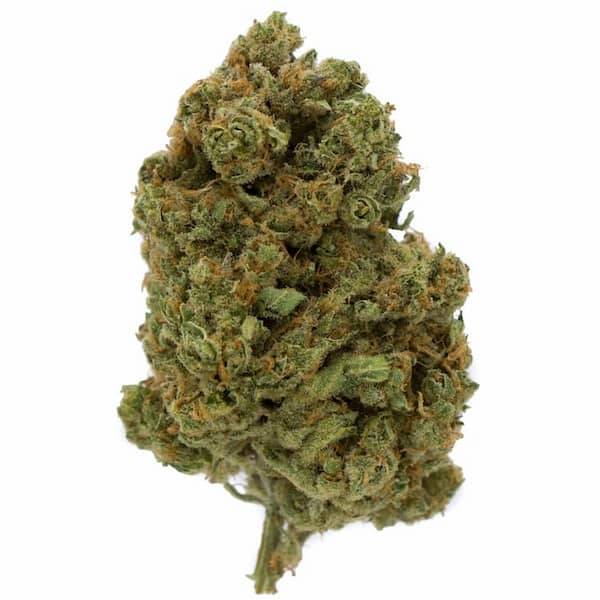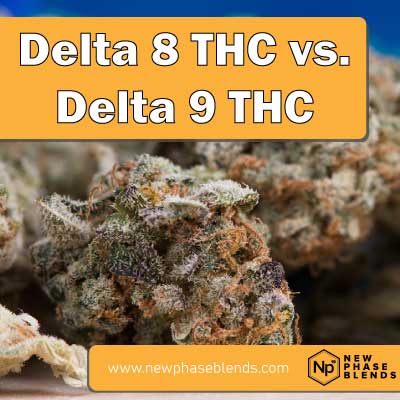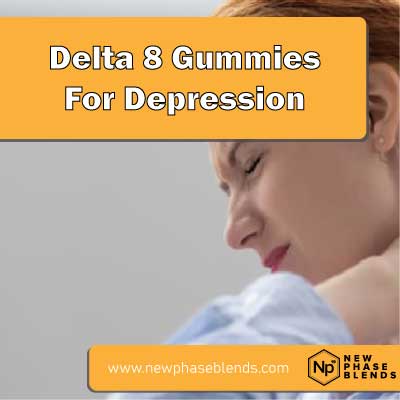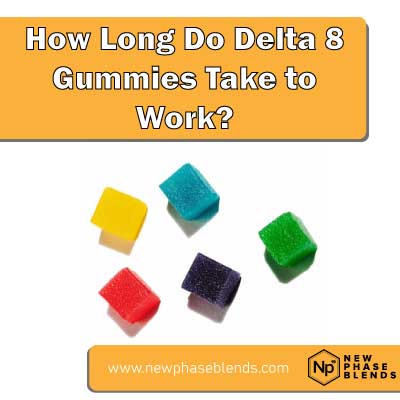Delta 8 THC and Delta 9 THC stand out as two of the most well-known and widely discussed plant chemical within cannabis. But what exactly are these compounds, and how do Delta 8 and Delta 9 differ from each other? In this comprehensive guide, we’ll get into the science behind Delta 8 and Delta 9 THC, and explore their similarities, differences, and potential effects.
Understanding Delta 8 THC: The Lesser-Known Cannabinoid
Delta 8 THC, or delta-8-tetrahydrocannabinol, is a minor cannabinoid found in the cannabis plant. While it’s structurally similar to Delta 9 THC, it’s present in much smaller quantities. Delta 8 is often referred to as the ‘little brother’ or ‘younger sister’ of Delta 9 THC.
Delta 8 THC is known for its milder psychoactive effects, offering a less intense high compared to Delta 9 THC. This makes it a popular choice for those seeking the therapeutic benefits of THC without the overwhelming psychoactive effects.
Delta 9 THC: The Main Psychoactive Compound in Cannabis
Delta 9 THC, or delta-9-tetrahydrocannabinol, is the primary psychoactive compound in cannabis. It’s responsible for the “high” associated with marijuana use.

Like Delta 8 THC, Delta 9 THC interacts with the endocannabinoid system, but it binds more strongly to the receptors, resulting in more intense psychoactive effects.
The Effects of Delta 8 THC: A Calm and Focused High
Users of Delta 8 THC often report experiencing a calm, focused high. This is due to the compound’s interaction with the endocannabinoid system, a network of receptors in the brain that regulate various physiological and cognitive processes. Delta 8 THC binds to these receptors, potentially influencing mood, pain sensation, and other functions.
Anecdotal reports suggest that Delta 8 THC can enhance focus, reduce anxiety, and stimulate creativity.
However, it’s important to note that these effects can vary greatly from person to person, depending on factors such as individual biochemistry, tolerance, and the dosage consumed.
The Effects of Delta 9 THC: A More Intense High
Delta 9 THC is known for inducing a more intense high compared to Delta 8 THC. Users often report feelings of euphoria, altered perception, and increased appetite. However, Delta 9 THC can also cause less desirable effects, such as anxiety, paranoia, and impaired motor skills.
These effects can be more pronounced at higher doses.
Delta 8 THC vs Delta 9 THC: A Side-by-Side Comparison
When comparing Delta 8 THC and Delta 9 THC, three main differences frequently come up:
- Delta 8 THC is less potent than Delta 9 THC, leading to a milder high. This can make Delta 8 THC a better choice for those seeking therapeutic benefits without intense psychoactive effects.
- The two compounds can have different effects on mood and cognition. While both can potentially enhance mood and reduce pain, Delta 8 THC is often associated with increased focus and creativity, while Delta 9 THC is more likely to alter perception and induce euphoria.
- Delta 8 THC and Delta 9 THC differ in their legal status. While Delta 9 THC is classified as a Schedule I substance under federal law, Delta 8 THC is legal in many states, provided it’s derived from hemp and contains less than 0.3% Delta 9 THC.
More on the Laws Surrounding THC…
The legal status of Delta 8 THC and Delta 9 THC varies significantly due to their different psychoactive properties and the sources from which they are derived. Delta 9 THC, the primary psychoactive compound in marijuana, is classified as a Schedule I substance under the Controlled Substances Act in the United States, making it illegal at the federal level – unless states have legalized it at the state level.
On the other hand, Delta 8 THC, which is less potent, exists in a legal gray area. The 2018 Farm Bill legalized hemp and all hemp-derived products containing less than 0.3% Delta 9 THC, which technically makes Delta 8 THC legal if it’s derived from hemp.
Some states have specifically outlawed Delta 8 THC, regardless of its source. Therefore, the legality of Delta 8 THC depends on both federal law and the specific laws of each state. Always check the laws in your area before purchasing or using any THC product.
Is Delta 8 THC the Same as Delta 9 THC?
No, Delta 8 THC and Delta 9 THC are not the same. While they are both forms of tetrahydrocannabinol (THC) and share a similar molecular structure, they have distinct differences. Delta 9 THC is the primary psychoactive compound in cannabis, known for producing the plant’s characteristic “high.”
On the other hand, Delta 8 THC is a minor cannabinoid that occurs in much smaller concentrations in the plant. It also has psychoactive effects, but they are generally reported to be milder and less intense than those of Delta 9 THC.
The two compounds interact with the endocannabinoid system in slightly different ways, which can result in different effects on mood, cognition, and perception.
Are Delta 8 Flowers Different From Delta 9 Flowers?
There’s no visual difference in the flowers (buds) of cannabis plants that produce delta-8 THC versus delta-9 THC. The difference between these compounds is purely chemical and occurs at the molecular level. Delta-8 and delta-9 THC are both cannabinoids found in cannabis plants. The main difference is in their chemical structure – specifically, the location of a double bond in their carbon chain.
This chemical difference affects how they interact with the body’s endocannabinoid system, resulting in different potency levels and effects. It’s important to note that most cannabis naturally produces delta-9 THC, while delta-8 THC is typically present in very small amounts. Commercial delta-8 products are usually created by chemically converting CBD or delta-9 THC into delta-8 THC through a laboratory process.
When looking at the different flowers themselves, you wouldn’t be able to visually distinguish a “delta-8 strain” from a “delta-9 strain.” The differences only become apparent after chemical analysis or when experiencing their effects.
Which Form of THC is Best?
Determining the “best” form of THC depends largely on individual preferences, desired effects, and tolerance levels. Delta 9 THC, the most abundant form in cannabis, produces a strong psychoactive effect and is often chosen by those seeking a potent high or significant pain relief. It can also lead to anxiety or paranoia in some users, particularly at high doses.
Delta 8 THC, on the other hand, offers a milder high and is often reported to induce a state of calm focus, potentially making it a better choice for those seeking to reduce anxiety or enhance productivity. It’s also often chosen by those who are new to cannabis or sensitive to the effects of Delta 9 THC.
Ultimately, the “best” form of THC is subjective and depends on the individual’s needs and experiences.
Is Delta 9 THC Safer Than Delta 8?
The safety of Delta 8 THC and Delta 9 THC depends on several factors, including dosage, individual tolerance, and the method of consumption. Both compounds are psychoactive and can have side effects, especially when consumed in high doses. These can include anxiety, paranoia, impaired motor skills, and changes in heart rate.
Delta 9 THC is more potent than Delta 8 THC and can therefore cause more intense side effects. Some users report that Delta 8 THC provides a milder, clearer high with less anxiety and paranoia than Delta 9 THC, which could potentially make it a safer option for those who are sensitive to the effects of cannabis.
Summary – Delta 8 THC vs Delta 9 THC Explained
In conclusion, Delta 8 THC and Delta 9 THC are two distinct compounds with unique properties and effects. While they share some similarities, their differences in potency, effects, and legal status make them suitable for different uses and preferences. Whether you’re seeking a milder, focus-enhancing high or a more intense, euphoric experience, understanding these differences can help you make an informed decision about which compound is right for you.
However, it’s crucial to remember that both Delta 8 and Delta 9 THC are psychoactive substances and should be used responsibly. Always start with a low dose to assess your tolerance and reaction, and consult with a healthcare professional if you have any health concerns. As we continue to explore the fascinating world of cannabis and its myriad compounds, one thing is clear: there’s much more to this plant than meets the eye.




















